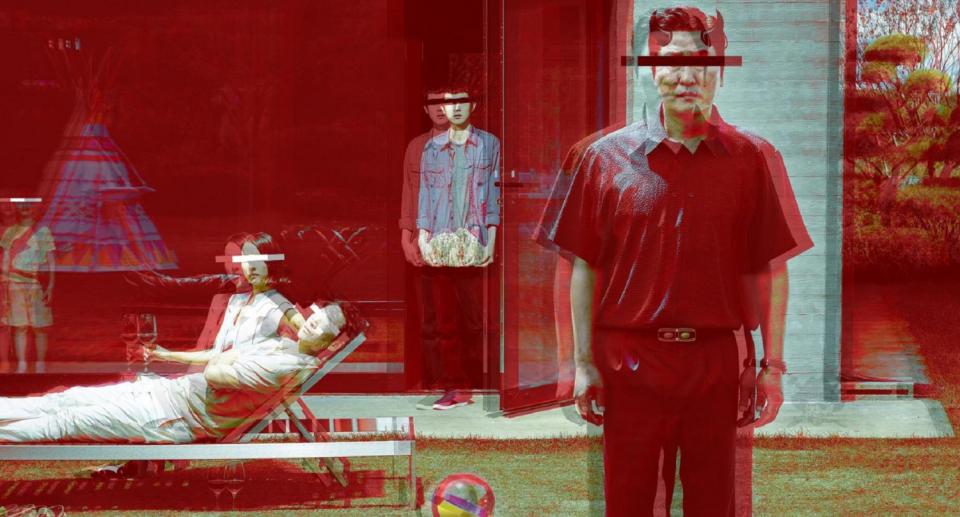Fahey’s Film Reviews: Parasite
Update April 16, 2020: Right now you can stream the movie on Amazon for $3.99 or for free if you have a Hulu subscription.
Everyone knows the famous saying “the grass is greener on the other side.” This proverb, however, is challenged by Korean director Bong Joon-ho in his film, “Parasite,” which pits the different classes of society together in his darkly comedic thriller.
The main focus of the film, the Kim family, represent the poor of society, scavenging for free Wi-Fi and desperate for work. Their cluttered and rundown semi-basement apartment exploits their destitute conditions.
Opportunity arises for the Kims when they are introduced to the Parks, a rich yet naive family looking for a tutor for their daughter. The oldest Kim son, Ki-woo, played by Choi Woo-shik, takes the tutoring position and slowly plots with his family to help take over various positions in the Park household.
A recurring image in the film is the “scholar’s rock,” a gift given to Ki-woo by his friend Min-hyuk, the original tutor for the Parks. The rock is said to bring the owner great fortune, and its reappearance throughout the film serves as an allegory for the various twists and turns that come with sudden inherited luck.
Song Kang-ho, who plays the father, Kim Ki-taek, fills the role of a cunning mastermind. Through his ability to act as a charmer, Ki-taek is able to figurehead the operation as a charming gentleman and a devious schemer.
The two main locations of the film show the duality of capitalistic real estate. In contrast to the Kim’s garbage-filled half-basement, the Parks reside in a multi-million dollar modern home adorned with an unnaturally green yard and priceless art. The lush landscapes shot by cinematographer Hong Kyung-pyo captures the aristocratic yet artificial nature of the home.
For a thriller, the overall tone of the film is surprisingly comedic. Many of the dynamic twists employed in the film are accented with crude humor concerning sexuality, North Korea, and other taboos. Much of the comedy also comes from the gullible Park family, who are susceptible to the manipulative plot of the Kims.
The climax, in contrast, comes as a major shock thanks to the film’s ability to build up suspense through clever foreshadowing. The consequences of the Kims’ scheme catches up to them, but not in a way the audience would anticipate. The harsh ending serves as a gloomy mirror to a society concerned with personal advancement over their fellow neighbor.
Don’t let the burden of having to read subtitles stop you from seeing the comedically engaging “Parasite.” The central themes of greed and materialism present an important message for Jesuit students to ponder.
James Fahey ‘20, Features Editor

